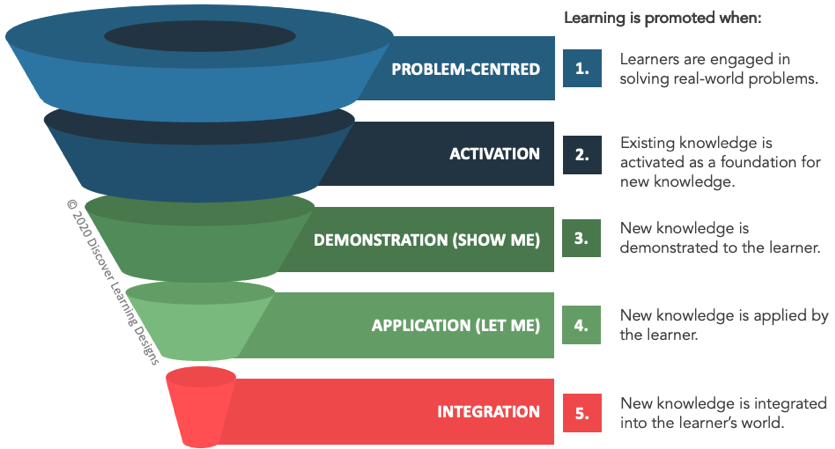
This week, I learned about Merrill’s First Principles of Instruction, which Merrill established in research to establish five instructional design principles that can be used to design any curriculum or practice for effective and efficient teaching.
Problem-centered: The learner is committed to solving real-world problems, and problem-centered learning is divided into three stages: showing tasks—task stratification—problem-driven.
Knowledge activation: Existing knowledge is activated as the basis of new knowledge, and activation is divided into three stages: existing experience-new experience-structural connection.
Achievement display: show new knowledge to learners, and the demonstration is divided into three stages: showing consistency – learning guidance – media support.
Applying new knowledge: The application of new knowledge depends on the learner and is divided into three stages: practice consistency— diminishing coaching—varied problems.
Knowledge integration: New knowledge is integrated into the learner’s world, and the integration is divided into three stages: reproduction-reflection-innovation.
I believe that by applying Merrill’s First Principles of Instruction I can ensure that my teaching is efficient and effective.
Reference
Merrill, M. D. (n.d.). First principles of instruction – educational technology research and development. SpringerLink. Retrieved October 16, 2022, from https://link.springer.com/article/10.1007/BF02505024.

Leave a Reply